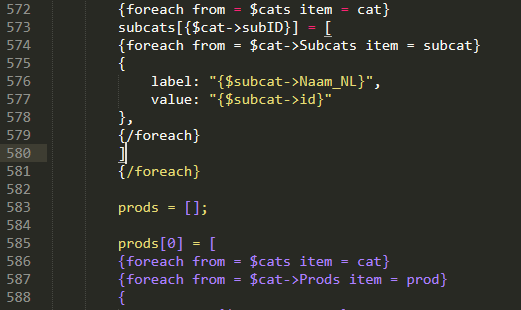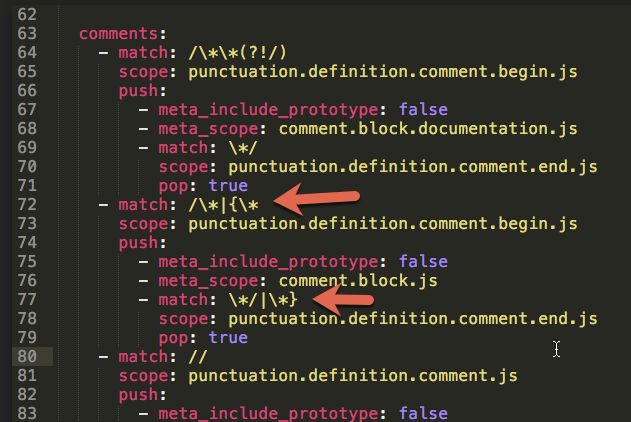I’ve started getting syntax highlighting errors when using Smarty that are driving me up the walls. I didn’t use to get them, but even fully reinstalling Smarty to default state isn’t getting rid of them.
Basically, often when I’ll type a slash inside Smarty text within a jaavascript script tag, everything that follows is just messed up. Short example:

I really have no idea why this is happening. Can I just completely ignore any / following a curly bracket directly or something? It’s really getting under my skin, and even installing some SMarty specific package for Sublime Text that I found did not solve the issue.


